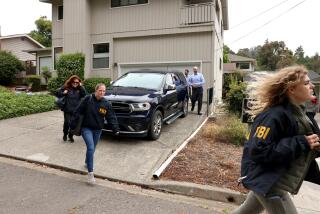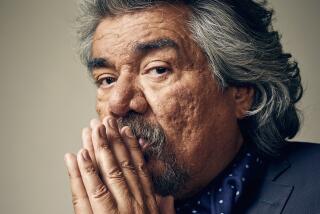Questions Raised About Promoter of Card Rooms
An investigation of casino owner George Hardie, who wants to open a card room in National City, raised questions about his business dealings with a club employee, but reached no conclusion about Hardie and found no illegal activities.
Instead, the report of the National City police investigation noted that several questions remain unanswered about Hardie’s unusual business dealings with Hollman Cheung, who manages the pai gow games at the Bicycle Club in Bell Gardens, in the Los Angeles area. The investigation also failed to confirm or reject reports that Asian organized crime has infiltrated the pai gow games at the club.
Police investigators concluded that law enforcement agencies and state gaming laws lack sufficient controls and regulations to keep organized crime out of card rooms and casinos. The report recommended continuing the ban on card rooms in National City unless the council passes a series of tough new local regulations designed to keep casinos closely regulated.
The investigation focused on the relationship between Hardie and Cheung, who is paid $2 million a year by the casino but who in turn paid Hardie-owned corporations $1.5 million from 1987 to 1989 for “information on investment opportunities.” National City Police Chief Stan Knee ordered the inquiry after Hardie petitioned the City Council for permission to build a card room in the city, and the report was released last Friday.
The City Council is expected to decide tonight on a proposal by Hardie to call a special election next month to allow National City voters to vote on the card-room issue. To approve the casino, voters would have to strike down a local ordinance banning card rooms.
Pai gow is a complicated card game popular with Asians and is the most profitable game at the Bicycle Club in the Los Angeles area. According to a letter sent by Hardie’s attorney to Assistant Police Chief Wayne Fowler, Cheung, who has a contract to run the club’s pai gow games, has worked at the club since February, 1985, and began his business dealings with Hardie in early 1987.
Although the report did not accuse Hardie and Cheung of any illegal activity, Fowler said their business dealings raised several questions and led police to request more information from Hardie, who acknowledged receiving the $1.5 million from Cheung.
“Hardie was told that (the information) was important to eliminate any suspicion of an inappropriate financial agreement between him and the pai gow manager,” said the report.
Fowler asked for “specific data which would reasonably justify the pai gow manager paying his (Hardie’s) corporations approximately $1.5 million over a two-year period.”
At first, Hardie agreed to provide more information. But, according to the report, on Dec. 23 he told police that he would not cooperate further. He was upset by inquiries made by Fowler to the Bell Gardens and Monterey Park police departments about him, the report said.
Six days later, Hardie’s attorney, Robert Ames, said in a letter to investigators that Hardie was prepared to cooperate again. But, in a Jan. 4 letter, Ames said that Hardie had changed his mind because the additional information requested by Fowler was proprietary.
In addition, Ames said that Fowler’s request for information about Cheung amounted to “harassment” and release of the data would subject Cheung “and his intimate business affairs to intense public attention.”
Ames quoted Hardie as saying that “there is no justifiable reason” for requesting information about Cheung because he was not going to be involved in the planned National City casino. Hardie also said he does not plan to include pai gow in the South Bay card room.
Hardie and Cheung failed to return phone calls made to their offices. Ames declined to comment.
According to a Dec. 29 letter written by Ames, Cheung and Hardie have been involved in more than 50 business ventures over the years, including hotels, restaurants, gaming concerns and land speculation. These ventures have included business partnerships and Hardie’s role as a “paid consultant” to Cheung, Ames said.
In the letter, Ames said that Fowler had raised allegations about Hardie and Cheung’s involvement in illegal kickbacks and money laundering. The attorney noted that Fowler had failed to make information about the allegations available to Hardie, and he demanded that Fowler stop making the accusations unless he was prepared to back them up in the report.
The final report had no mention of kickbacks or money laundering by Hardie and Cheung. Fowler did not return phone calls to his office.
However, the report noted that Asian organized crime, particularly the Hong Kong-based Triad gang and the West Coast-based Wah Ching gang, have infiltrated card rooms in California that feature Asian card games.
Pai gow was introduced into California card rooms in the mid 1980s, and the “majority of the pai gow operations are contracted out to a person of Chinese descent,” said the report.
More to Read
Sign up for Essential California
The most important California stories and recommendations in your inbox every morning.
You may occasionally receive promotional content from the Los Angeles Times.









